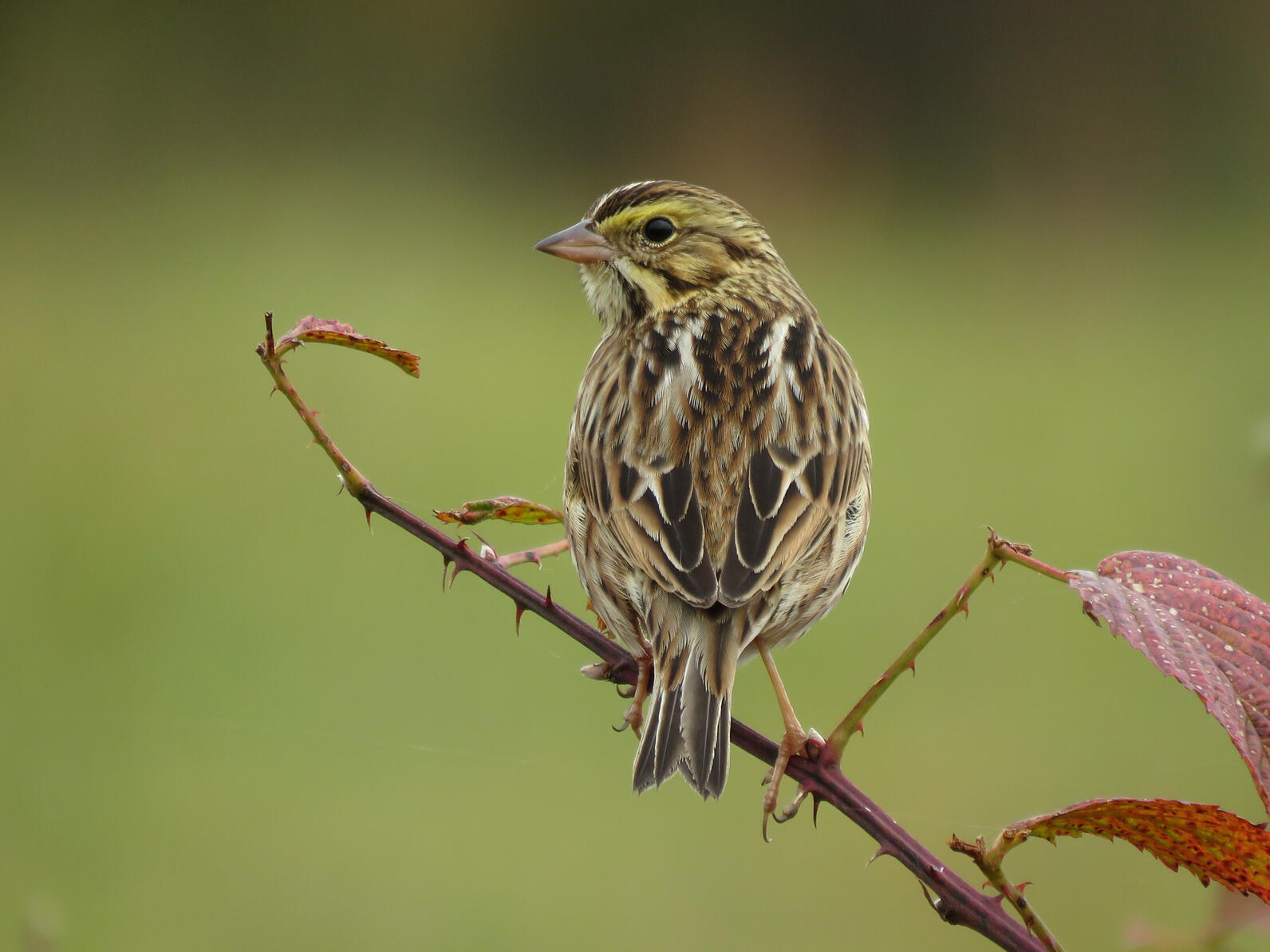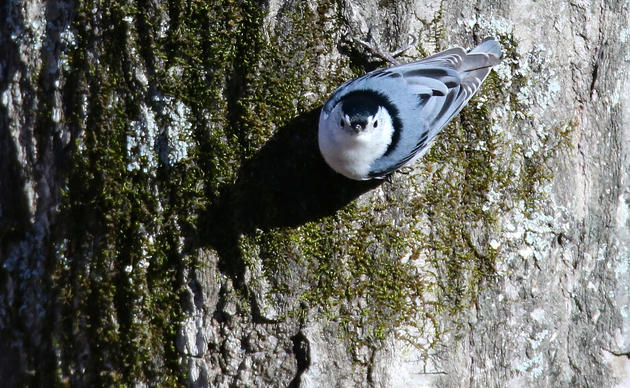The Savannah Sparrow was only a few feet away, busy declaring his territory with his beak opening wide and his throat visibly vibrating. I was lucky to chance upon him. But he must have a voice problem, since I could not hear the Savvy’s song, like buzzy summer insects. Then another, and another Savannah Sparrow defied my wish to hear them.
Kinglets were assumed to be perceptible to only the best human ears in our bird group, so we trusted the reporters who heard them and didn’t think much more about it. But a Savannah Sparrow is another matter. As a retired ear doctor, I tried a few self-diagnostics. I could still hear a finger-rub next to each ear. I tried on-line hearing screening, and disregarded the findings as the company wished to sell me an expensive hearing aid. Eventually, I ordered an inexpensive device as a short-term option – which some of my patients had recommended, a “Pocket Talker” – aim the microphone at a sound, adjust the device’s volume and the frequency it amplifies, and listen thru headphones. (Also handy for late night TV so as not to disturb the spouse.) It was a relief to hear those Savannah Sparrows again, and even the kinglets.

I, like 38 million American adults aged 20-69, have trouble hearing. For many it is mainly the high tones that are lost first. The Savannah Sparrow, with his high buzzy song, had given me a clue that I was losing my upper frequencies, since I was not aware of trouble hearing human conversation. The majority of human speech is made of low to mid-frequency sounds but certain sibilant consonants (e.g. f, s, th) are high frequency. Folks with high frequency hearing loss will often only hear part of a word and so misunderstand a message. For example, I may not hear an “s” that pluralizes a noun. Or, I don’t hear “f” and “fruit” becomes “root”. Other people can have low-frequency hearing loss which impacts different speech sounds. Hearing loss has many causes – aging, noise exposure, medications, heredity or structural ear disease. Ear wax, surprisingly, rarely impedes hearing.
But hearing loss can cause more than mere misunderstanding or inconvenience while birding. This is the motivation for our writing this article. Increasingly, research has associated hearing loss with social isolation, depression, and increased risk of falls. Now research shows a clear association between untreated hearing loss, even when mild, and declines in cognitive function. Hearing loss is the largest modifiable risk factor for developing dementia, exceeding smoking, high blood pressure, lack of exercise and social isolation according to an entire volume dedicated to dementia prevention in the respected journal Lancet (Livingston, G et al. July 20, 2017). Treating hearing loss in mid-life potentially decreases the risk of developing dementia by 9%.
Hearing loss appears to contribute to social isolation, even when people are with others. The extra work of processing unclear words and sounds in conversations seems to affect memory and other cognitive tasks. The affect is cumulative, since an unused memory tends to atrophy. Surprisingly, a measurable drop in cognitive ability occurs with even mild hearing loss (Golub, J. et al. JAMA Otolaryngology Head and Neck Surgery: November 14, 2019).
For birders, we are already tuned in to listening closely. If you notice a problem with hearing, talk with your doctor, and consider seeing a certified audiologist who may suggest a wide range of aids that can now be personalized to meet an individual’s specific needs. It will not only improve your birding by ear ability, it can significantly improve your long-term quality of life.






